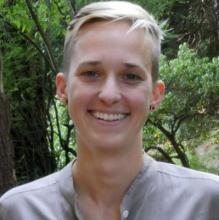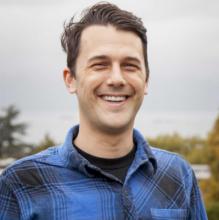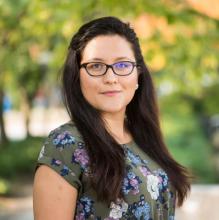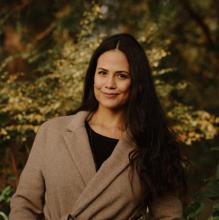Sonia's study provides greater insight into a population of dancers on whom research is lacking—racialized and minoritized women, unpacking the complex and diverse choreographies and relationships of dance that these women engage in; and how their experiences can inform multiculturalism and policy (re)visioning.
Research Description
My cross-country and cross-border study focuses on the (de)colonial power of dance and its possibilities for (un)doing intersecting forms of oppression of racialized women. It also inquires into how city policies and resources facilitate or hinder the mobilizing power of dance. I seek to address and deepen understanding of the following: 1.) How do women navigate and negotiate the possibilities and limits of dance for modes of being ? 2.) In what ways do city policies and resources support racialized women dancers; and facilitate or hinder their mobilization? 3.) What can this collaborative study—which centers racialized women’s experiences with dance—contribute to decolonial theorization and to the articulation of a philosophy of public policy-making that considers dance engagement and relationships as part of addressing power inequities in societies that perceive themselves as multicultural and diverse?
What does being a Public Scholar mean to you?
It means creating bridges, co-creating knowledge with those most often marginalized and minoritized, and facilitating methodologies for accessibility of scholarship—keeping education of and for the people. Most importantly, it means recognizing that those of us engaging advanced studies have socio-political impact and power to contribute to wider transformation. It is up to us how we use it. Being a Public Scholar provides me with support structures to challenge inequitable structures and amplify my work and those of the communities I collaborate with.
In what ways do you think the PhD experience can be re-imagined with the Public Scholars Initiative?
Researchers doing community and art engaged research in collaboration with marginalized and minoritized populations lack the financial and resource support to develop their work properly because it is consuming on many fronts--emotionally, spiritually, spatially, relationally, etc. Knowledge mobilization and accessibility requires vast investment and focus. The PSI is a step forward towards recognizing the value of research committed to the possibility of socio-political transformation towards a more equitable and sustainable way of living and interacting. I am looking forward to my work as a PSI scholar!
How do you envision connecting your PhD work with broader career possibilities?
I view my PhD work as part of a pathway to a two-pronged career as a professor and public service leader. I hope to continue working closely with graduate students and also within a government or a civil society organization to support marginalized and minoritized peoples.
How does your research engage with the larger community and social partners?
I regard the women dancers and choreographers as collaborators; and the city cultural planning representatives as critical contributors. Overall, I believe my research will engage and be of value to the collaborators, Vancouver's choreographic community of practice, and public arts funders and leaders. It seeks to stir dialogue and broader and deeper understanding of intersectional forms of oppression, dance as a wellness and resistance practice, and arts barriers, along with suggestions for arts policy transformation.
Why did you decide to pursue a graduate degree?
I have only ever known the pain and beauty of working along and across 'border' or 'fissure' lines. I have witnessed how critical research, teaching and policies by racialized diaspora and Indigenous peoples on issues impacting us, is missing. The PhD is a door to bridge together the worlds of academia, community and policy-making towards the empowerment of women and racialized peoples, by centering our voices, perspectives and initiatives.
Why did you choose to come to British Columbia and study at UBC?
I am interested in collaborating with leading critical education, culture and policy specialists such as my committee members. UBC is the ideal site to develop innovative cross-border and cross-Canada wide research merging the education, arts and policy sectors. I hope to contribute to shifts in the way that Latin American, educational, diaspora and development studies and programming are viewed and constructed at UBC and in Western Canada.
I have witnessed how critical research, teaching and policies by racialized diaspora and Indigenous peoples on issues impacting us, is missing. The PhD is a door to bridge together the worlds of academia, community and policy-making towards the empowerment of women and racialized peoples, by centering our voices, perspectives and initiatives.




